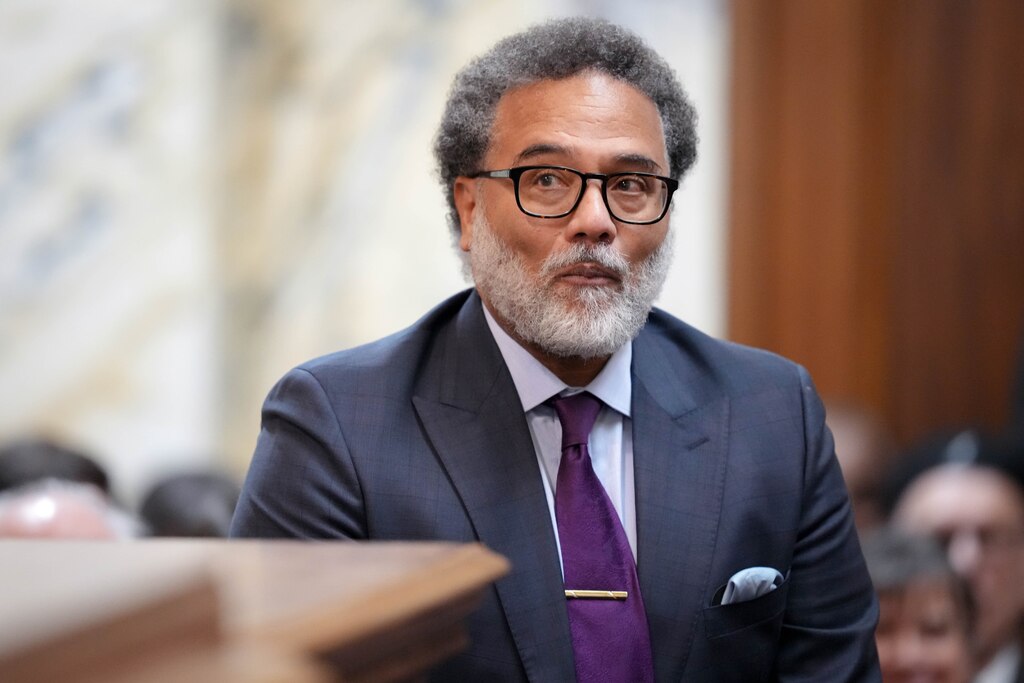Let’s not sugarcoat it: It’s been a terrible few months for many federal workers and, by extension, many Marylanders and their families.
The state faces an uncertain future where its most reliable industry — the federal government — no longer feels like it’s on solid footing. In response, local leaders and state officials are trying to help workers find stability and chart a new path forward.
“We want you to stay,” Comptroller Brooke Lierman said in an interview. “We want to help our federal workers find ways to make a good living and to find fulfillment in other opportunities.”
We talked to Lierman and Maryland Commerce Secretary Harry Coker Jr. about the state of industries in Maryland and where people should be looking for jobs. They said the private sector is stronger than you might think, and that many state and local agencies are eager to hire federal workers.
The Baltimore Banner thanks its sponsors. Become one.
The state of jobs in Maryland
As the state official tasked with keeping watch over Maryland’s revenue, Lierman and her staff regularly study the state’s economy. They previously found Maryland struggled to rebound from the COVID-19 pandemic and a lone bright spot had been federal jobs.
But when they crunched the numbers recently, they found reasons for optimism. In 2024, Lierman said, Maryland businesses were hiring more employees in sectors like health care, retail, finance and insurance, and professional and technical services.
“At the end of 2024 our economy was moving, workers were finding jobs, Marylanders were reentering the workforce who had been sitting out,” Lierman said. “Things were going well.”
Then the Trump administration started making massive cuts to federal jobs and funding.
 Comptroller Brooke Lierman said in 2024 Maryland businesses were hiring more employees in sectors like health care, retail, professional and technical services, and finance and insurance.
Comptroller Brooke Lierman said in 2024 Maryland businesses were hiring more employees in sectors like health care, retail, professional and technical services, and finance and insurance.Lierman said a jobs report from March showed Maryland lost 3,500 public sector jobs and gained 2,300 private sector jobs. It was a net loss, but Lierman said it showed the state’s economic picture is more complex than it might seem.
The Baltimore Banner thanks its sponsors. Become one.
“We don’t want to let the negativity around the federal government’s shedding of its workforce to totally overshadow the fact that our private sector is continuing to grow at a rate that it had not been before 2024,” Lierman said.
Opportunities for federal workers
Coker said the state is acutely focused on three areas of private sector growth:
- Quantum computing, cybersecurity and artificial intelligence
- Life sciences
- Aerospace and defense
Even if someone hasn’t worked in these specific fields, there is still opportunity for employment there, Coker said.
 Maryland Commerce Secretary Harry Coker Jr. says there’s opportunity for employment in the private sector in Maryland.
Maryland Commerce Secretary Harry Coker Jr. says there’s opportunity for employment in the private sector in Maryland.“In order to make something as potentially intimidating as quantum computing as useful as possible we will need these translators, non-STEM people, to make these things more user friendly,” said Coker, whose job it is to help grow Maryland’s economy.
Manufacturing jobs are also going to be available in the near future.
The Baltimore Banner thanks its sponsors. Become one.
AstraZeneca is opening a facility in Rockville this week that will employ 150 people. Hitachi is building a rail car facility in Hagerstown that will employ 460 people directly and could create another 900 indirect jobs, Coker said. In Baltimore, Hellenic Cables, an undersea cable company, has plans to build a factory that could also employ hundreds.
Read More
Maryland needs public service workers
If former federal workers want to stay in the public sector, the Maryland government has developed a centralized system to streamline applications from former federal workers.
Résumés that match open positions will be disseminated to the pertinent departments, then interviews will start and offer letters should go out by early June, officials said. More positions are expected to post in July.
“We’re getting a bevy of really impressive job applicants applying for our jobs now, which is exciting to see,” Lierman said.
In that same vein of public service, there is a need for teachers and police officers across Maryland, Coker said. On the teaching front, Coker said the state is working to speed up the teacher certification process so people who enter without an educational background can get in the classroom sooner.
“I would ask folks to take a look at that,” Coker said.



Comments
Welcome to The Banner's subscriber-only commenting community. Please review our community guidelines.